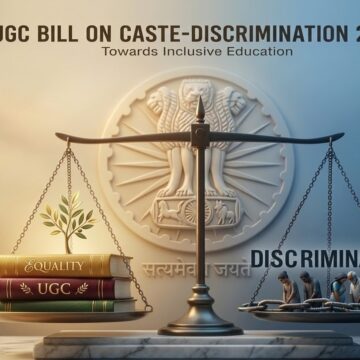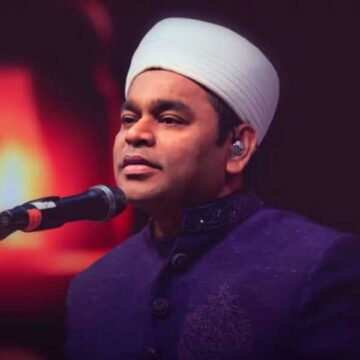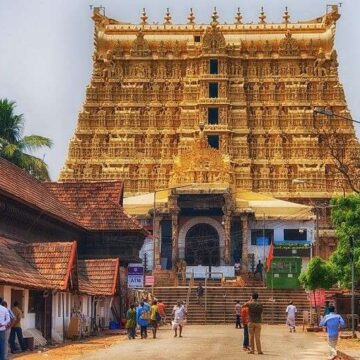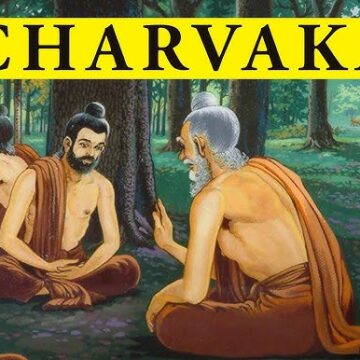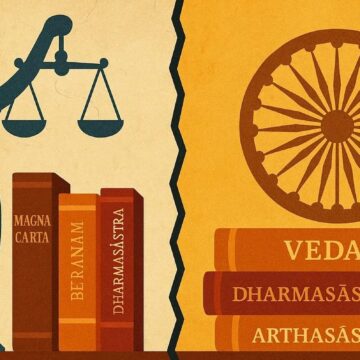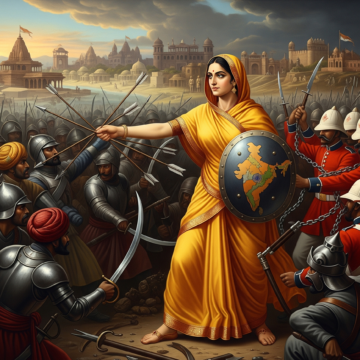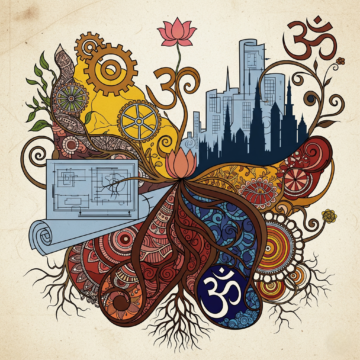Aryan Anand argues that the debate around the recent UGC guidelines has remained confined to immediate political reactions, ignoring the deeper intellectual frameworks shaping such policies. Drawing on strands of critical social theory, he contends that contemporary policy increasingly operates through rigid oppressor–oppressed binaries. Applied mechanically to the Indian context, this framework risks misreading the complex realities of caste and society. Anand suggests that policies built on such assumptions may ultimately deepen social divisions rather than address them.
Category: PERSPECTIVE
Gaffe or Gambit – Did A R Rahman Cross a Line While Keeping Within Others?
Was A.R. Rahman’s reference to a “communal thing” in Bollywood a careless gaffe—or a calibrated signal within a larger minority-progressive discourse? Situating his remarks within a broader pattern of celebrity secularism, this essay argues that selective invocations of intolerance often coexist with studied evasions on questions of history, identity, and civilizational memory. Rahman’s diplomatic silences—on Aurangzeb, on cultural politics, on ideological alignments—appear less accidental than strategic. The result is a familiar cycle: grievance, outrage, clarification, and international amplification. At stake is not merely celebrity speech, but the narrative framing of Hindu-majority India itself.
Inside the Temple Crisis: Governance and Preservation Challenges
Across India’s temple towns, rising tourist footfall, evolving governance structures, and new revenue models are reshaping how sacred sites are administered and preserved. Temples, once self-sustaining civilizational institutions, are increasingly treated as revenue-generating assets, with properties sold, offerings monetized, and darshan commodified. Rema Raghavan writes that this commercialization displaces local communities, erodes ritual continuity, and weakens the organic moral oversight once provided by resident devotees. As temples transform from living centers of worship into tourist spectacles, the intimate bond between deity, devotee, and community frays. Restoring temples as civilizational epicenters, she argues, requires accountable governance, empowered local participation, and an uncompromising commitment to ritual and heritage preservation.
Tyranny of Asceticism: Case of the Charvaka
Charvaka has long been dismissed as a philosophy of excess, yet this caricature stems from an ascetic worldview that treats pleasure as inherently suspect. When perception alone is accepted as truth, morality need not depend on divine command but on an intrinsic human compass. The author contends that the Charvaka tradition reminds us that seeking material pleasure is not a fall from grace, but a legitimate way of living without forfeiting moral sense.
Yoga Darśana: The Jīva’s Discipline Amidst Jagat and Īśvara
This essay by Garikapati Pavan Kumar explores the Vedic and Upaniṣadic foundations of Yoga, tracing its disciplined trajectory through the four pādas of the Yoga Sūtras and culminating in the realization of svarūpa and kaivalya. It is written with a commitment to śāstric clarity, and philosophical depth.
Khan Abdul Ghaffar Khan: Liberal or fanatic?
Was Khan Abdul Ghaffar Khan truly the “Frontier Gandhi”, a liberal humanist wronged by history, or a devout fanatic disguised in Gandhian robes? This essay revisits that question through forgotten records, overlooked testimonies, and Sita Ram Goel’s sharp insights. From Pashto pride to Pakistan’s politics, the story unravels a man far more complex and perhaps less idealistic than the hagiographies suggest.
Justice Beyond Colonial Laws: The Case for Dharmic Judiciary
India’s judicial system, still anchored in colonial frameworks, often appears disconnected from the spirit of Dharma when adjudicating on matters of faith, family, and tradition. Judges with little understanding of Hindu philosophy or scriptures frequently issue rulings on matters of Dharma. From casual remarks on our deities to misguided interpretations of temple customs, such decisions reveal a deep cultural disconnect. It’s time to restore balance by establishing Dharmic courts, grounded in our own civilizational wisdom and moral vision, to decide on matters of Dharma, culture and family.
Dharma, Defense, and the Forgotten Art of Shatrubodh
A cobra once promised a Sadhu never to bite, only to be beaten by villagers who mistook its restraint for weakness. The Sadhu reminded it: “I asked you not to bite, but did I ask you not to hiss?” The parable mirrors Hindu society’s larger civilizational problem of mistaking non-violence for inaction in the face of aggression. True Ahimsa was never about surrender — it was resistance rooted in Dharma, with Shatrubodh (enemy-awareness) as its guiding strength.
That! Who or What is Worth Worshipping?
In post-Christian Europe, many no longer subscribe to traditional theology or atheism, instead calling themselves “Something-ists” or “spiritual but not religious.” This vague belief in “Something” echoes ancient Indian thought, where the Vedic word Tad—“That”—points to the Absolute beyond description. Found in the Ṛg-Veda, Upaniṣads, and Bhagavad Gītā, Tad represents the witness-consciousness, the essence beyond qualities. The clearest enunciation of Tad, at once one of the profoundest Vedic phrases is the assurance Tat tvam asi, “that thou art” in the Chāndogya Upaniṣad. Thus, what seems modern is rooted in one of humanity’s oldest insights into the ultimate reality.
Dharma and Development : A Civilizational Balance
When development is not rooted in culture, a nation is reduced to just a geographical landmass. Development and culture are not mutually exclusive in the Indian civilizational context. Sanatana Dharma doesn’t ask us to choose between development and devotion to faith — it asks us to integrate them. Its Purushartha framework enables human fulfillment in every aspect of life, with Dharma as the guiding principle. From the Ram Mandir to the Kumbh Mela, what critics dismiss as distractions are often engines of economy, culture, identity, and belonging.

